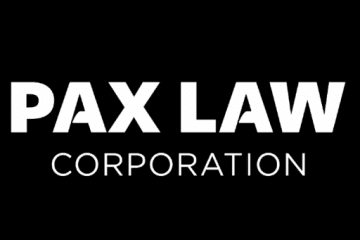Canada’s province of British Columbia boasts one of the most significant ratios of businesses per capita according to the small business profile 2021 statistics. In a region with roughly 5 million people and slightly more than 500,000 small businesses, a tenth of the BC population consists of small business entrepreneurs of some kind.
You don’t have to start from the bottom up if you plan to join the growing list of BC entrepreneurs. British Columbia laws allow you to purchase an established business and save yourself from the uncertainty of losing investment on start-up failure. This is an attractive option for any entrepreneur, considering there’s a higher chance to succeed with an actively operating, established business in BC rather than building one from scratch.
Table of contents
How to buy and sell a new business in BC
Varying reasons like a personal lifestyle decision or current financial situation could drive business owners to sell their businesses. For buyers, the need to own an established entity with a proven track record and a customer base could be a reason enough to pursue a business purchase deal.
The entire process of buying and selling a business in BC is complex and bears significant risks to both parties. From deciding on the deal’s structure to other contractual obligations, you need ongoing expert guidance to get the deal over the finish line.
Many entrepreneurs looking to buy or sell a business are skilled business operators with experience running business affairs. What could be lacking is the necessary experience in structuring a deal when buying or selling a business.
Essential considerations when buying and selling an existing business In BC
If you’re selling, the goal of the sale is to maximize revenue and minimize any ongoing obligations. You also want to avoid common mistakes when selling a business and get the best deal possible out of the transaction.
For the buyer, you have to minimize the purchase cost and any other expected future risks. You should also determine if you want to purchase a business outright or obtain financing to assist with the purchase.
Here are the key steps for closing the sale of a business deal in British Columbia:
1. Develop a structured transaction process
The initial buying and selling process typically begins with a letter of intent to the seller as a non-binding offer. Its serves as the preliminary part of the negotiations, where the tentative agreement between the parties is set forth.
This is also the phase where you must agree on whether the transaction will be put up as a sale of company shares or as a straightforward asset purchase by the buyer. The deal’s structure must be carefully thought out because this distinction will have significant legal and financial ramifications for both parties and the transaction itself.
Asset structured business purchase/sale
A business transaction involving asset acquisition means the buyer must only commit to buying the seller’s company’s assets. The transaction agreement could also allow the buyer to decide which company duties they will take after finalizing the acquisition.
In BC, a provincial sales tax act applies to the assets of a business that are taxable goods and software unless a specific exemption is issued. The buyer must seek a clearance certificate before proceeding with such a transaction.
An asset acquisition transaction may also allow the seller to transfer the business debts to the buyer.
Share structured business purchase/sale
A structured share transaction is where you purchase the company’s shares and, as a result, gain control of the company’s rights, assets, and liabilities. This type of transaction favours the seller(s) because they’ll release themselves from liability.
Both parties must have expert analysis on a cost-benefit approach to decide the optimal course of action. This is a critical phase you shouldn’t skip because each type of business purchase/ sale transaction in BC has distinct tax ramifications.
2. Preliminary investigation and due diligence
Verification is crucial after the buyer receives all the information required from the seller. For instance, more due diligence is necessary to ascertain actual ownership of the businesses’ critical assets. A more thorough audit of the company’s financial statements, agreements with stakeholders, and regulatory compliance are also crucial considerations.
Most sellers will seek to take advantage and absolve themselves of ongoing responsibilities for the business while still obtaining the full purchase price. So, there’s a need for professional advice on how the seller can provide a guarantee of the business’s potential future profitability.
Why you need a lawyer to buy and sell your business in BC
You can only finalize the purchase or sale deal if compliance requirements are met and both sides are satisfied with the agreement. In most circumstances, the decision to formalize the contract depends on whether the buyer is satisfied with the information they’ve received.
Both parties need a lawyer present throughout the negotiations before sealing the purchase or sale deal. A lawyer can advise their client on what the valuation will entail and can minimize any potential harm from accepting undesirable terms.
Here are more reasons to involve a lawyer while buying and selling your business in British Columbia. A corporate lawyer can:
Oversee the preliminary due diligence
A lawyer will help during this phase by completing the much-needed last-minute investigations into any claims made against the company’s assets. They can help the buyer thoroughly search government and court records to ensure the seller owns the business’s assets and does not owe any debts for which the buyer could be liable.
To advise on intellectual assets
A framework for safeguarding and promoting the services and goods developed by innovators is provided by BC laws on copyrights, patents, and confidential information. Some business transactions include elements that cross over into other such areas of law.
A lawyer with a vast experience in intellectual property is best suited to lay an outline of issues to consider when purchasing or selling a business. They’ll help verify if the business owns the intellectual property rights and how to protect yourself from other companies stealing the idea.
To prepare documents and close the deal
Business buyers must prepare the legal documents sent to the seller’s lawyer for review before the transaction can be finalized. Lawyers specializing in business purchases and sales have the industry and legal understanding needed to accomplish this task.
A lawyer understands the documentation required to guarantee that both the buyer’s and seller’s interests are effectively represented and safeguarded. Hiring an attorney can ensure that all the documentation is in order and adequately completed so that the transaction proceeds smoothly.
The two primary documents that a lawyer will help you prepare include:
Letter of Intent (LOI) – This is the first document exchanged between a seller and a prospective buyer. It details the transaction’s main components and facilitates the negotiations’ final terms.
Purchase and Sale Agreement – This entails the main contract outlines in detail. It has the terms and conditions that both parties agree on how and when to pay the purchase price. A purchase and sale agreement also details how to handle legal issues that could complicate the process.
For business protection
Protection is vital, especially while conducting a legal business purchase or sale. Without legal help, a seller risks being taken advantage of, forgetting crucial clauses that release them from all debt and liability.
Both parties also need a lawyer to craft a business protection agreement through a non-compete clause, effectively preventing direct competition between them in future.
For efficiency
A lawyer’s efficiency shows in their ability to interact, draft, negotiate, and exchange information for the client. They focus on law and will save the time taken in protracted negotiations.
Why buy an existing business?
Buying an established business jumpstarts your journey, despite potential challenges with the existing company culture. When you buy a business, you inherit a solid clientele network and an existing brand. Other benefits include:
- It significantly reduces the start-up time due to the availability of trained staff, customer base and revenues.
- You can quickly build your operations on something solid and in existence, such as the sales history and marketing channels.
- There’s an existing sales and marketing channel to leverage when rolling out new products or services.
- An established business increases your ability to secure financing to grow the business even more.
A major challenge is that you may need to invest more in buying an existing business than starting your own. Buying a business requires due diligence to avoid inheriting cash flow issues, debts, or significant changes.
Final Thoughts
Purchasing or selling a business in BC is a complicated process, depending on the size and complexity of the business. The entire process may take 6 to 12 months before you fulfill the compliance requirements and finalize every transaction detail. Having a lawyer’s assistance ensures the procedure is conducted correctly, effectively, and protects your interests.
At Pax Law Corporation Amir Ghorbani is able to guide you through the process.
Resources
The Legal Steps to Buying a Business
How to sell your business
Small Business Profile 2021



0 Comments